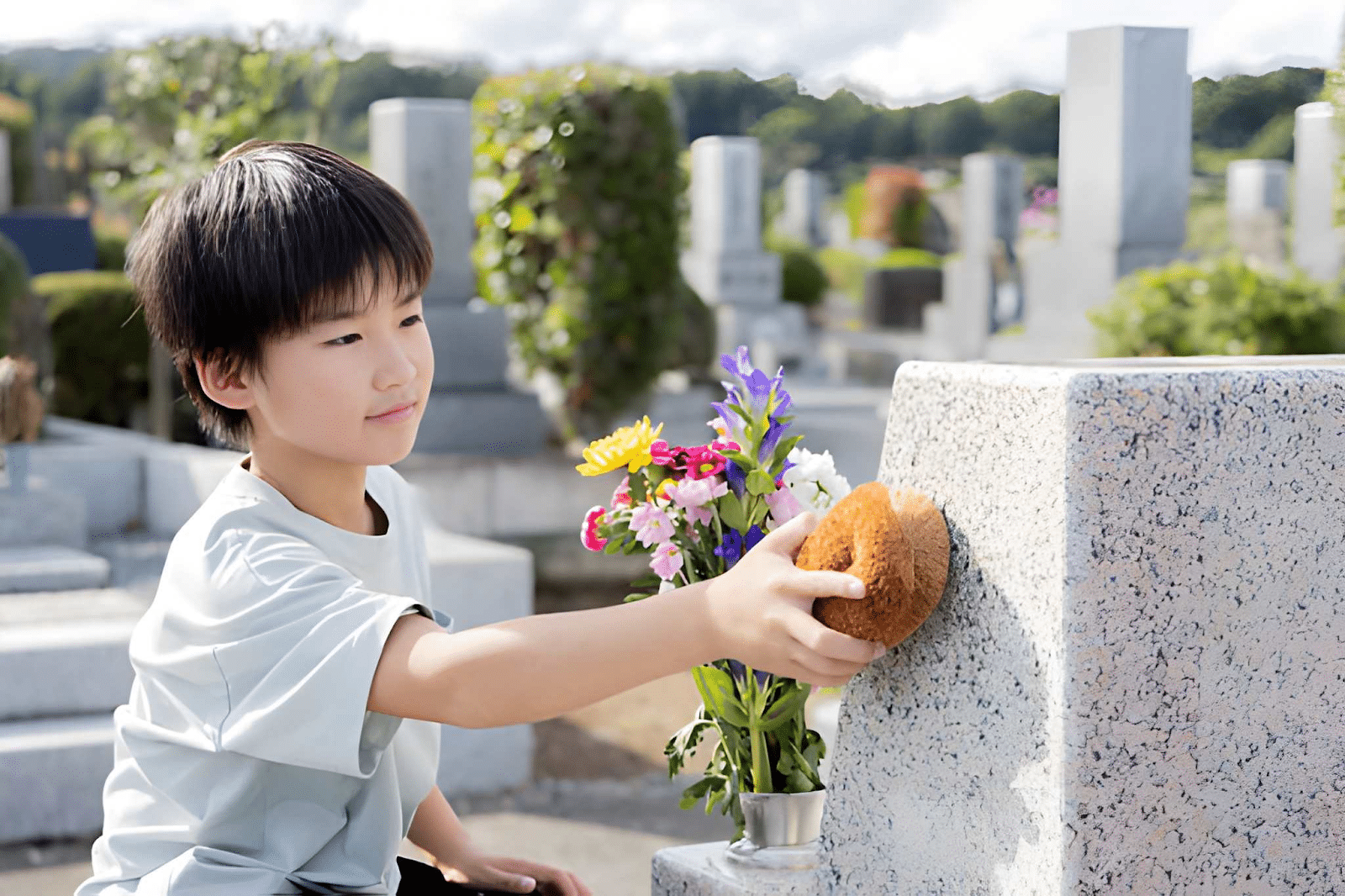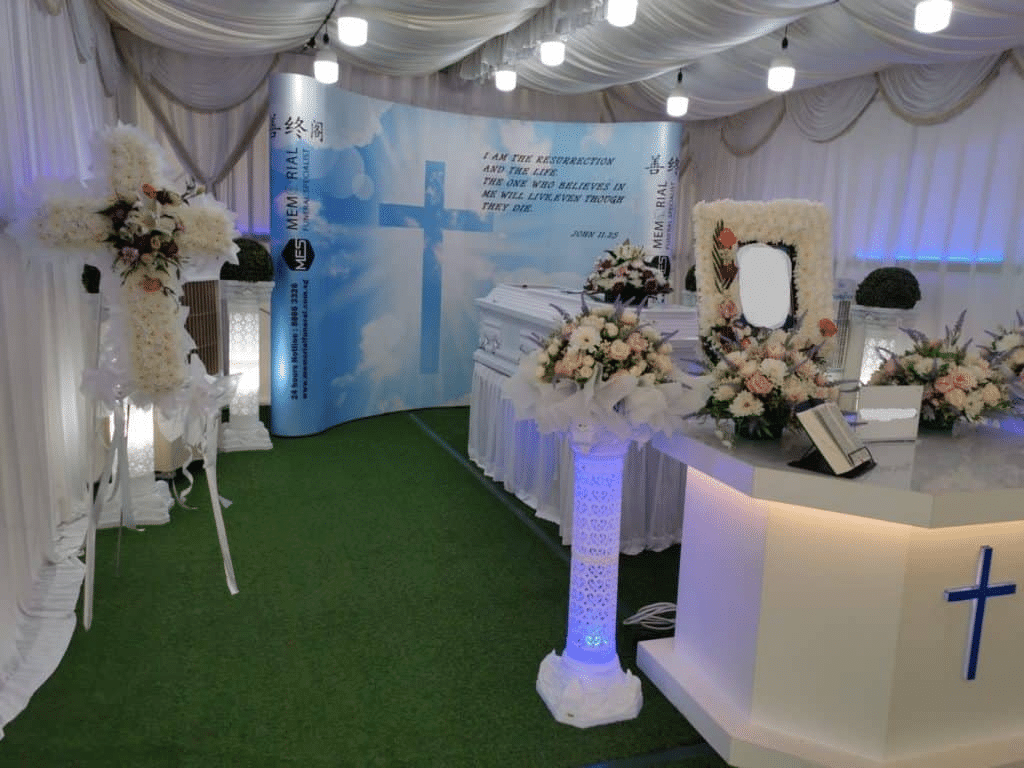Christian funeral etiquette and customs play a significant role in the way believers bid farewell to their departed loved ones. These traditions are deeply rooted in the faith, serving as a source of comfort, reflection, and reverence during a time of loss. When attending or organizing a Christian funeral, it is of paramount importance to honor these customs, not only out of respect for the deceased but also to provide solace to the grieving family.
This article delves into the intricacies of Christian funeral etiquette and customs, shedding light on the principles and practices that guide these solemn ceremonies. Understanding and respecting these traditions is a way of showing empathy and compassion during a time of deep sorrow, helping to provide a sense of closure and spiritual comfort to all involved.
Need A Professional For A Christian Funeral?
Contact us today to discuss a solution personalised for and catered to your every need.
OR
The Christian Perspective on Death
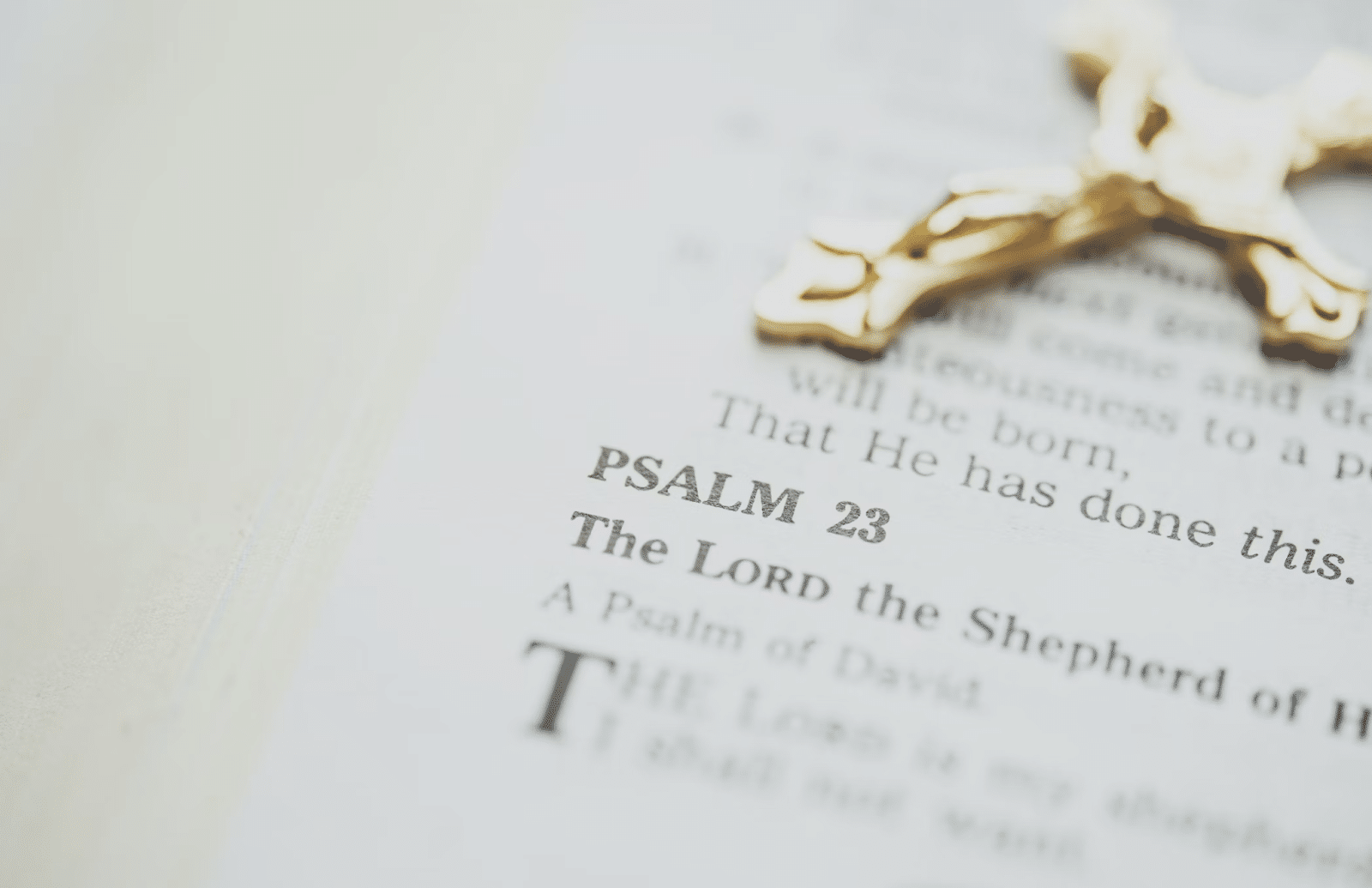
(Source: Splash)
Christianity holds distinctive beliefs about death, the afterlife, and the profound role of faith in coping with loss. Understanding these perspectives is fundamental to appreciating the customs and etiquette associated with Christian funerals.
1. Christian Beliefs about Death and the Afterlife
In Christian theology, death is viewed as a transitional phase in one’s journey from earthly life to the eternal afterlife. It is not seen as an end but as a doorway to a different form of existence. Christians believe that the soul continues to exist after death, awaiting the final judgment. This perspective offers profound comfort to the grieving, assuring them that their loved one’s spirit endures.
2. Significance of Hope and Resurrection
Central to Christian beliefs is the concept of hope and resurrection. Christians have faith in the resurrection of the dead, which is based on the resurrection of Jesus Christ. This doctrine brings immeasurable hope to those mourning a loved one’s passing. It underscores the assurance of eternal life and reunion with the departed in the presence of God. This hope is a cornerstone of Christian funeral customs and serves as a source of solace and strength during the grieving process.
Christian funeral customs and etiquette are deeply influenced by these beliefs, emphasizing the celebration of life that continues in the presence of God and the promise of an everlasting reunion. In the midst of sorrow, these Christian teachings provide a profound and comforting perspective on death and loss.
Pre-Funeral Preparations

(Source: Splash)
Before a Christian funeral takes place, there are essential pre-funeral preparations that both the family and attendees should consider. These preparations contribute to the smooth and respectful conduct of the funeral service.
1. Notifying the Church or Clergy in Advance
It is customary and often considered a mark of respect to inform the local church or clergy about the impending funeral. This notification allows the church to make the necessary arrangements, reserve the date and time, and ensure that the service aligns with the family’s wishes and the church’s customs. In some cases, it may also be necessary to coordinate with the clergy to schedule any specific rites, rituals, or eulogies that the family desires. Additionally, the clergy can provide guidance on the order of service, appropriate hymns, and other important details, ensuring that the funeral is conducted in accordance with Christian customs.
2. Offering Condolences to the Bereaved Family Before the Funeral
Expressing condolences to the bereaved family is a thoughtful and considerate gesture that provides comfort and support. Before the funeral, it is common for friends, acquaintances, and community members to offer their condolences. This can be done through various means, including:
Personal Visits: Visiting the family in their home to offer condolences in person. This visit may also involve offering assistance or providing a sympathetic ear to listen to the family’s grief.
Condolence Cards and Letters: Sending written condolences, which often contain heartfelt messages and prayers for the family’s comfort and healing.
Floral Arrangements: Sending flowers to the family as a symbol of sympathy and to brighten their home during a difficult time.
Donations or Acts of Kindness: Making donations to charitable organizations or offering to help with practical tasks like meal preparation or running errands for the family.
By offering condolences and notifying the church or clergy in advance, both attendees and the bereaved family demonstrate respect and support, setting the stage for a meaningful and reverent Christian funeral service. These gestures of kindness and preparation ensure that the funeral is a fitting tribute to the departed and provides solace to those who are grieving.
Appropriate Dress Code and Attire for Christian Funeral
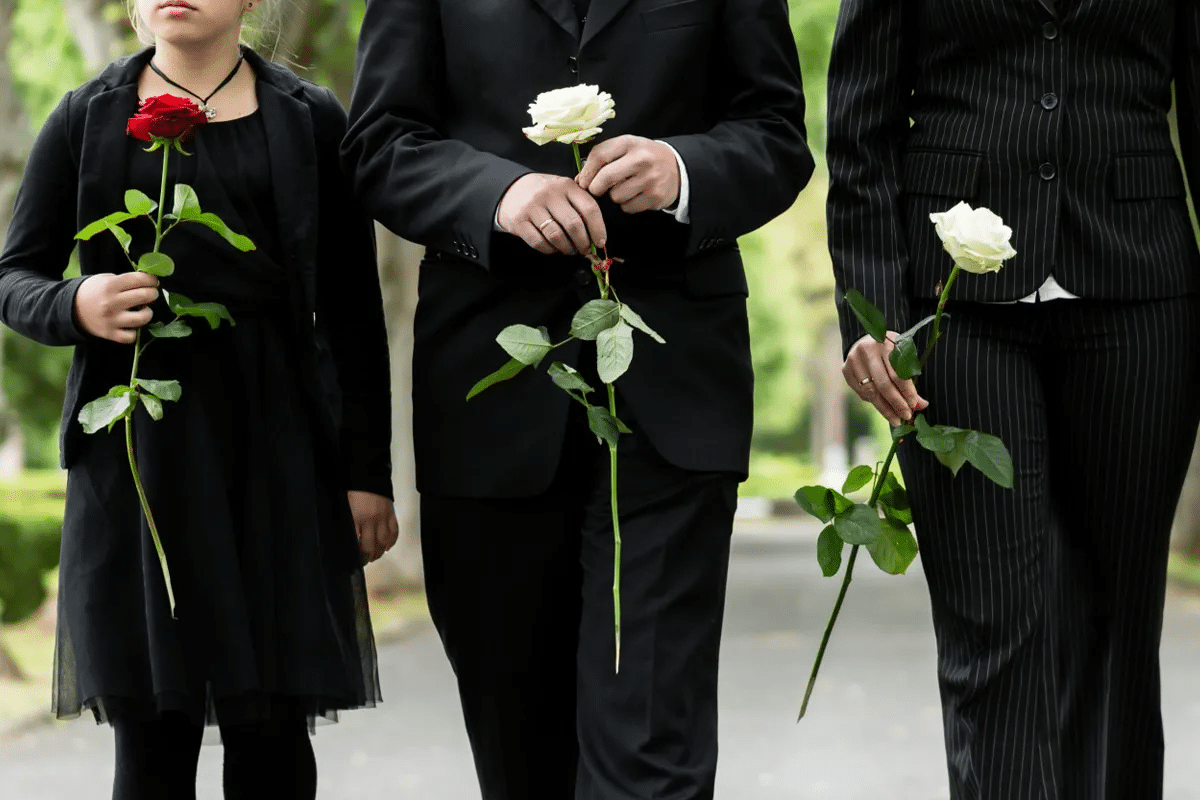
(Source: Splash)
Respectful and appropriate attire is a significant aspect of Christian funeral etiquette. When attending a Christian funeral, one should be mindful of dressing in a way that reflects reverence for the occasion and offers support to the grieving family.
Modesty and Simplicity: Modesty and simplicity are key principles when selecting attire for a Christian funeral. Clothing should be respectful, avoiding anything that could be considered ostentatious or attention-grabbing.
Dark Colors: Traditionally, dark colors such as black, gray, navy, or deep blue are preferred for funerals. These colors are seen as symbols of mourning and reflect the solemnity of the occasion.
Conservative Dress: Choose clothing that is conservative in style, covering the body appropriately. Avoid clothing that is revealing, overly casual, or flamboyant.
Comfortable Attire: Given the length of funeral services, it’s important to select clothing that is comfortable for sitting and standing for extended periods.
Conduct and Behavior For Christian Funeral

(Source: Splash)
Attending a Christian funeral comes with a set of expectations regarding conduct and behavior. These guidelines are in place to ensure a solemn and respectful atmosphere throughout the funeral service.
1. Emphasizing Solemnity and Respect
Solemn Atmosphere: Christian funerals are solemn occasions, and attendees are expected to maintain a sense of gravity and reverence. This is a time for reflection, prayer, and support for the grieving family.
Respectful Demeanor: Attendees should demonstrate respect for the deceased, their family, and the customs and traditions of the church. This includes showing empathy, understanding, and sensitivity to the emotions of those in mourning.
2. Arrival and Seating
Punctuality: Arriving on time is crucial. Being punctual ensures that the service can begin as planned and minimizes disruption. Late arrivals can be distracting and disrespectful to the grieving family and other attendees.
Finding an Appropriate Seat: When entering the church or funeral venue, find an open seat quietly and efficiently. It is customary to defer to the family when choosing a seat, allowing them to sit at the front if they wish.
3. Avoiding Disruptive Behavior and Electronic Devices
Silence Electronic Devices: It is essential to silence or turn off mobile phones, pagers, and other electronic devices before entering the service. The sound of ringing phones or message alerts can disrupt the somber atmosphere and be highly disrespectful.
Whispering and Conversation: Whispering and conversation should be kept to an absolute minimum and, if necessary, conducted discreetly and quietly. The focus should be on the service and supporting the bereaved.
Refrain from Photography or Videography: In most cases, taking photos or recording videos during the service is discouraged. Always seek permission from the family or the officiating clergy if there is a desire to capture moments.
Eulogies and Personal Tributes in Christian Funerals

(Source: Mint)
Eulogies and personal tributes play a meaningful role in Christian funeral services, offering an opportunity to celebrate and remember the life of the departed individual. While they are a cherished part of the service, there are considerations to ensure that tributes align with the Christian message and maintain an atmosphere of respect and reverence.
1. Appropriateness of Eulogies and Personal Tributes
Eulogies and personal tributes are not only appropriate but encouraged in many Christian funeral services. They serve the following purposes:
Celebrate the Deceased: Eulogies allow family and friends to share stories and memories that celebrate the life of the departed. These anecdotes often highlight the person’s character, achievements, and the positive impact they had on others.
Provide Comfort: Personal tributes can offer comfort to the grieving by focusing on the love and cherished moments shared with the deceased.
Emphasize Faith: Eulogies and tributes can incorporate Christian faith and values, reinforcing the belief in resurrection, eternal life, and the hope of reunion with the departed in the presence of God.
2. Keeping Tributes Respectful and in Accordance with the Christian Message
While eulogies and personal tributes are an integral part of the service, it is important to ensure that they align with Christian values and maintain an atmosphere of respect:
Reflect Christian Values: Eulogies should reflect Christian values, emphasizing compassion, love, forgiveness, and the hope of resurrection. This can be achieved by incorporating scripture, prayers, and messages of faith.
Avoid Controversial or Inappropriate Topics: It is advisable to avoid controversial or inappropriate topics during eulogies. Instead, focus on positive and uplifting aspects of the deceased’s life.
Stay Within Time Limits: Given the time constraints of a funeral service, it is respectful to keep eulogies and personal tributes within a reasonable time frame to ensure that the service proceeds smoothly.
Coordinate with the Clergy: It is a good practice to coordinate with the officiating clergy or minister regarding the content and length of eulogies to ensure they are in harmony with the service.
Emphasize the Christian Message: Tributes should convey the message of hope, faith, and the promise of resurrection, reinforcing the central tenets of Christian belief.
Eulogies and personal tributes serve as a heartfelt and cherished part of Christian funeral services. They offer an opportunity to honor and remember the life of the departed, while also providing spiritual support and comfort to the grieving. When delivered with care, sensitivity, and alignment with Christian values, they can be a powerful and meaningful aspect of the funeral service.
Expressing Condolences in a Christian Funeral
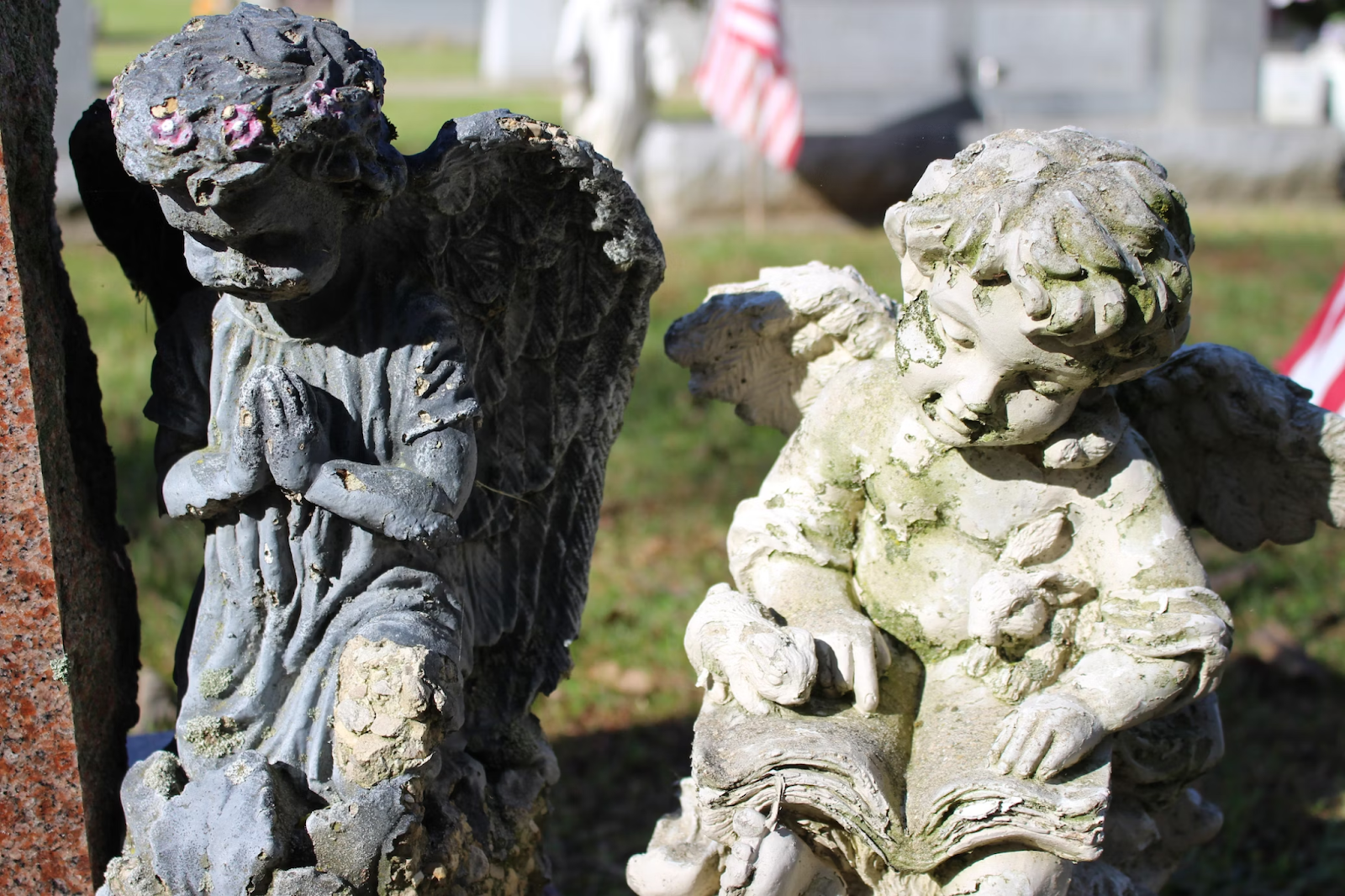
(Source: Splash)
Offering condolences to the grieving family is a vital aspect of attending a Christian funeral. It provides comfort and support during a difficult time and demonstrates care and empathy. Here’s guidance on how to express condolences with sensitivity:
1. Expressing Condolences in Person
Personal Visit: A personal visit to the grieving family’s home is a traditional and meaningful way to express condolences. It provides an opportunity to offer comfort, share memories, and lend a sympathetic ear. Be respectful of their privacy and emotions.
Offering a Hug: A warm and gentle hug can convey a depth of empathy and comfort. Be sure to respect the family’s personal space and their comfort with physical contact.
2. Condolence Cards and Letters
Handwritten Notes: Sending a handwritten note or condolence letter is a thoughtful gesture. Express your sympathy, share a fond memory of the deceased, and offer support and prayers for the family.
Sympathy Cards: Sympathy cards are available with pre-printed messages that convey your condolences. Personalize the card with a handwritten message to make it more meaningful.
3. Flowers and Floral Arrangements
Sending Flowers: Sending a floral arrangement to the family’s home is a common way to express condolences. Flowers symbolize sympathy and provide a comforting presence.
Choosing Appropriate Flowers: Select flowers that are understated and in muted or white colors, as these are traditional symbols of mourning and peace.
4. Donations and Acts of Kindness
Donations: Making a charitable donation in the name of the deceased can be a meaningful way to honor their memory. Consider a cause or organization that was important to the deceased or the family.
Acts of Kindness: Offer assistance to the grieving family, such as preparing meals, running errands, or taking care of tasks that may be burdensome during this time.
5. Appropriate Words of Sympathy
Simple and Sincere: Offer simple and sincere words of sympathy, such as “I’m so sorry for your loss” or “My thoughts and prayers are with you.”
Share Memories: Sharing a fond memory of the deceased can be comforting. It reminds the family of the positive impact their loved one had on others.
Express Support: Let the family know that you are there to provide support, whether through listening, helping with practical matters, or simply being present.
6. Appropriate Gestures of Sympathy
Attend the Funeral: Your presence at the funeral is a significant gesture of sympathy. It demonstrates your support and respect for the grieving family.
Participate Actively: Engage in the funeral service by following the order of service, participating in hymns and prayers, and showing reverence.
Follow Up: After the funeral, it’s thoughtful to follow up with the family to offer continued support and to check on how they are coping with their loss.
7. Respect Their Grief
Remember that the grieving process is highly personal, and individuals may respond differently. Respect their need for space and privacy if they choose not to engage in conversation or receive visitors. Above all, your presence and expressions of sympathy should convey love, support, and a genuine desire to help them through this difficult time.
Post-Funeral Gatherings and Meals in Christian Funerals

(Source: Funeralwise)
Post-funeral gatherings and meals are common practices in many Christian funeral traditions. These gatherings serve a vital role in offering support, comfort, and fellowship to the bereaved, and they play a significant part in the healing process.
1. Common Practices Regarding Post-Funeral Gatherings and Meals
Reception or Repast: After the funeral service, it is customary to host a reception, often referred to as a “repast” in some Christian traditions. This gathering typically takes place at a designated location, such as a church hall, community center, or the home of a close family member.
Sharing a Meal: One of the central aspects of these gatherings is the sharing of a meal. It is a time when attendees come together to share food and engage in conversations. The meal may range from simple refreshments to a full-course dinner, depending on the preferences and customs of the family.
Fellowship and Support: These gatherings are an opportunity for attendees to offer emotional support and fellowship to the grieving family. They provide a space for individuals to express condolences, share memories of the deceased, and offer comfort.
Informal Gathering: Post-funeral gatherings are generally informal, fostering a sense of community and unity among attendees. They provide a more relaxed environment than the formal funeral service.
2. Purpose of Post-Funeral Gatherings and Meals
Offering Comfort: Post-funeral gatherings offer comfort and solace to the grieving family. Sharing a meal and being surrounded by loved ones can be consoling during a challenging time.
Promoting Fellowship: These gatherings promote fellowship and encourage attendees to support each other emotionally. It is a time for friends and family to come together, reinforcing the sense of community.
Celebrating the Deceased: In addition to offering condolences, these gatherings often include opportunities to celebrate the life of the deceased. Attendees share stories, memories, and anecdotes that commemorate the person’s life and impact.
Continuing Support: Post-funeral gatherings allow for ongoing support beyond the formal service. Grieving is a process that extends beyond the funeral day, and these gatherings offer a space for individuals to continue providing comfort and assistance.
Maintaining Traditions: In some Christian traditions, these gatherings are a longstanding part of the funeral custom, honoring cultural and religious traditions that emphasize the importance of community and solidarity during times of mourning.
Why Celebrate the Life of the Deceased

Celebrating the life of the departed is profoundly significant, offering solace, closure, and a chance to honor their memory. In a Christian context, this celebration embodies faith in the promise of eternal life through Jesus Christ. It brings healing and closure, honors the person’s legacy, strengthens the sense of community, and instills hope in the resurrection. Christian values guide these celebrations with prayers, scriptures, eulogies, acts of kindness, fellowship, and unwavering support for the grieving. This compassionate remembrance provides solace and reassurance through the Christian belief in the eternal life found in Christ.
Conclusion
In conclusion, Christian funeral customs are deeply rooted in faith and serve as a means to celebrate the life of the departed and find hope in the promise of eternal life. By adhering to the principles of respect, modesty, and empathy, attendees and organizers alike can provide solace and support to the grieving. These customs are not just about saying goodbye but also affirming faith in the eternal. In this way, attendees demonstrate reverence, kindness, and understanding, honoring the memory of the departed and comforting their loved ones during times of loss.
Want to know more about Christian funerals? Contact us at +65 8866 3326 to find out more.




